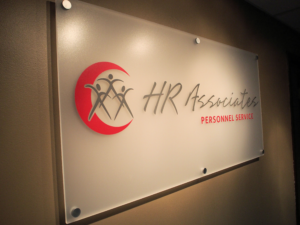 Most Performance Management (PM) programs use an ineffective , appraisal process to track employee performance and the time has come for managers to step up and really get involved. Having managers and supervisors merit workforce performance is time consuming and does very little to drive constructive conversations. In a recent article by Wharton Business School Professor, Peter Cappelli, he said 1/3 of US companies have found a more effective way of reinforcing desired employee behaviors and managing performance. He states, many companies are abandoning the traditional appraisal process and moving to more frequent, informal check-ins between managers and the workforce.
Most Performance Management (PM) programs use an ineffective , appraisal process to track employee performance and the time has come for managers to step up and really get involved. Having managers and supervisors merit workforce performance is time consuming and does very little to drive constructive conversations. In a recent article by Wharton Business School Professor, Peter Cappelli, he said 1/3 of US companies have found a more effective way of reinforcing desired employee behaviors and managing performance. He states, many companies are abandoning the traditional appraisal process and moving to more frequent, informal check-ins between managers and the workforce.
Promoting teamwork through regular conversations will promote the company’s goals and individual goals. Weekly meetings should be used to reinforce and explain each individual’s value and importance in achieving the end goal, which is the success of the company. Small group merit rewards throughout the year, will promote an environment of team and community. As for poor performers, these individuals are helped through continuous monitoring and more frequent coaching, leading to less turnover. A Feedback Box is recommended so everyone has the ability to aid in business and process development through positive or negative feedback. General Electric has even introduced a feedback app, PD@GE, for supervisors which also permits employees questions.
Moving away from stressful and possibly degrading PM tasks to a regular, day-to-day proactive PM system will keep company goals in the forefront of everyone involved. HR Associates attended a PM Workshop at BGSU, in which keynote speaker, Dr. Elaine Pulakos gave some insight as to how a company can institute PM change. In 2010, Pulakos, working for the Corporate Leadership Council (CEB), developed a five step path for PM reform for the Cargil corporation, which included behavioral change to the workforce.
- Plan Change to the current system, as well as, discussing new strategies for going forward. You need to understand where you are before you can change.
- Streamline the current system. Too many internal regulations and policies can be cumbersome to execute and inhibit managers from having constructive conversations with the employees. Throw out mandatory reviews and rating programs.
- Motivate Change through daily performance interactions and the four critical PM behaviors – Inspire, Adapt, Align, & Grow. As mentioned previously, linking an employee’s work to the mission & success of the company will inspire & promote self esteem. Adapting short term goals will put them within reach and in the forefront year round. Frequent informal feedback and praise will foster behavioral changes and all employees will exhibit growth by being a vital part of the daily conversation.
- Embed Change through continuous exposure to experiences which will lead to better extraction of key principles. Better understanding will lead to higher application of good practices, which in turn will lead to a 30% performance improvement by the workforce.
- Evaluate and monitor PM change so you are able to continue to adjust and grow with your workforce.
Today’s connected & savvy workforce has the world at their fingertips and with this competitive pressure, companies are forced to step up their talent management efforts. If you don’t train and develop your employees, they will find a company that will.
